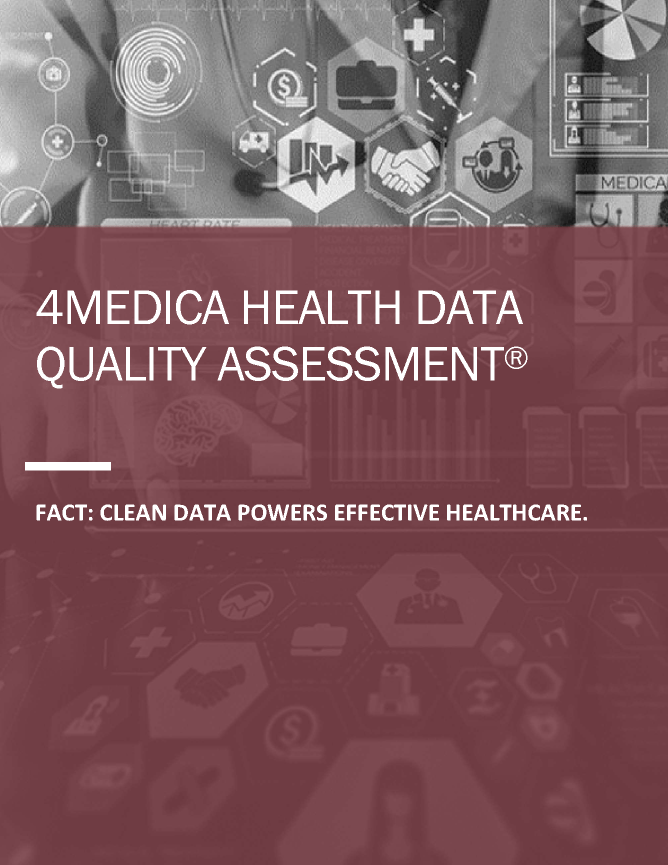Inputting and keeping provider data updated requires you to have at least one system to save that information. And that system will need regular maintenance to ensure accurate provider data.
Imagine you had a platform to keep all your provider data in one place that guaranteed simple and accurate patient and provider organization. That’s what a provider data management (PDM) system can offer you. But what is provider data management in healthcare, and how can it benefit your practice? We answer these questions and explain the provider data management process in this comprehensive article.

What is Provider Data Management in Healthcare?
Provider data management (PDM) in healthcare is a centralized system used to connect and oversee provider data throughout an enterprise within your healthcare organization. The goal of this system is to make sure that your healthcare organization has reliable access to information about your providers for both administrative and operational purposes.
Some of the reasons to use provider data management systems include:
- Network management
- Claims processing
- Credentialing
- Referrals
- A business and providers directory
Provider data management (PDM) helps prevent poor patient experiences and ensures that your company gets the most out of your resources. It also makes it simpler to prevent errors when billing or submitting claims due to better data accuracy and organization.
Provider Data Explained
PMD systems help manage provider data, but just what is provider data? Provider data may include information such as:
- License IDs
- Titles
- Provider specialties
- Credentialing or re-credentialing data
- Which providers are or are not in-network
- Phone numbers
- Names
- Addresses
- Medicare or Medicaid IDs
- DEA IDs
- NPI numbers
This data is useful because it identifies unique individuals on the system and helps match them. For example, this information can help identify a provider who accepts a specific insurance policy. This helps enable healthcare organizations to best serve patients and promotes provider satisfaction.
The Importance of Provider Data Maintenance
Now that you know the kinds of data you can collect, you may be asking why you’d want to collect it for your healthcare organization. The simple answer: It makes it much easier to track your providers and the unique details about them. Using a PMD system keeps all data in one centrally accessible location so you can view it in one place.
As a part of collecting and holding that data, you also have to emphasize provider data maintenance, including:
- Reviewing provider data
- Updating details about providers
- Correcting provider data on an as-needed basis
This upkeep is necessary as it keeps your system up to date. Better accuracy reduces errors such as sending a patient to a provider who doesn’t accept their insurance plan.
The Dangers of Poor Provider Data Management in Healthcare
It is, unfortunately, the case that poor provider data management comes with its own set of risks.
Duplicate Records
When you lack a PDM system or don’t maintain it well, there is a risk that duplicate records could occur, such as a provider’s information being copied accidentally or updated as a new copy in the system. In either case, there may be more than one result for the provider’s name, and that result could have two different addresses or other confusing discrepancies.
Missing Data
Without a PDM system, you won’t have all your organization’s provider data in one place. While it’s certainly possible to use multiple systems and still access provider data, there is a real risk that you could lose or misplace data with that setup.
You could find that data is only available in one system and not the other, creating a greater risk of miscommunication or delays.
Inconsistent Data
Inconsistent data is another risk when you have a poorly maintained PDM system or no PDM system at all. Failing to update the system regularly could lead to outdated or incomplete provider data. This could lead to patients being referred to healthcare providers who no longer practice or cause delays because the provider doesn’t take their insurance policies.
Poor PDM maintenance could lead to billing errors from claims being sent to the wrong providers, as well. Plus, you could fall out of compliance if you don’t keep your provider data up-to-date
Outdated Data
Finally, poor PDM system maintenance can lead to outdated data that causes slow downs. Outdated data can lead to patient frustration, trouble with billing insurance companies, and other significant issues.
During the maintenance phases, provider information has to be updated and verified. This includes:
- Changes in practice locations and affiliations
- License number errors
- Accreditation renewals
- General provider data (name, contact information)
Ensuring that data is accurate keeps your business operating smoothly and minimizes the risk of common problems like incorrect coding, denied claims, and delayed referrals.
What is a Provider Data Management System?
A provider data management system offers users a centralized platform to create, update, consolidate, analyze, and access provider data within a healthcare enterprise in a single location. This system helps solve several business challenges that crop up in healthcare organizations.
When data is incorrect, it leads to slow downs in patient care, claims, and referrals. For instance, if a provider has two entries in the system rather than one, a lab could send a patient’s bloodwork results to the wrong entry. If the provider doesn’t receive the results, then the patient may have a delay in further care.
By using a provider data management system, healthcare organizations like yours can prevent data errors by regularly checking and updating the information within the PDM system. Since all the data is in the same place, it’s much easier to track data and help clear out inconsistencies before they become problematic.
With a provider data management system, your healthcare organization has complete access to up-to-date data, real-time analytics, and the accurate information you need to make decisions for your practice, patients, and providers.
4medica Solves Provider Data Management Issues in Healthcare
At 4medica, we provide you with a data quality platform to make “one patient, one record” a reality for your organization. We approach data quality as an ongoing process and have a 99% identity accuracy performance guarantee. With this, you can meet your organization’s goals by keeping your patient, provider, and organizational metrics data up to date, all in one place.
